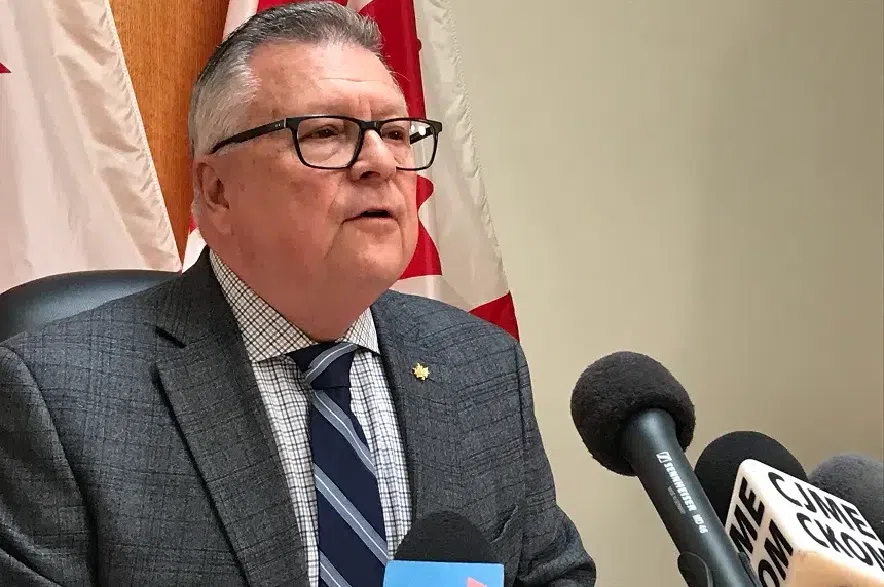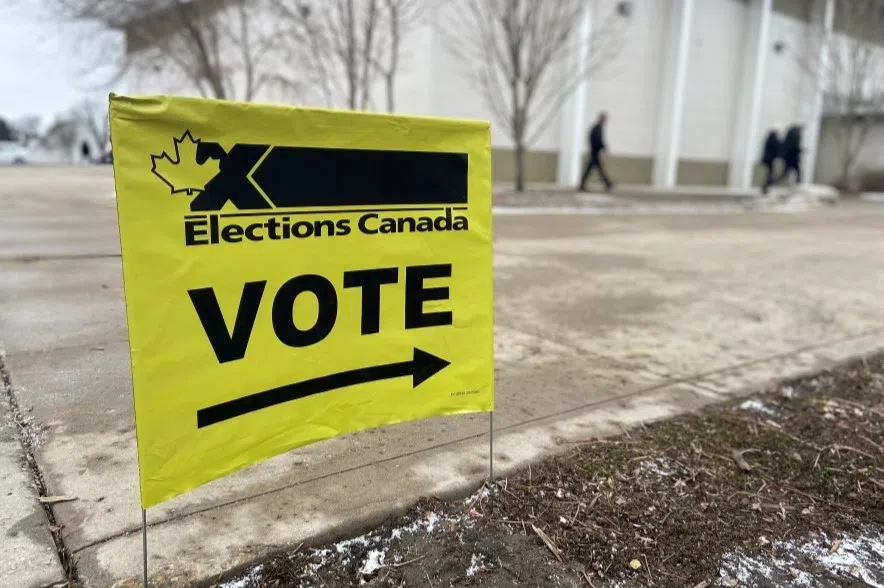Saskatchewan wasn’t always a wall of blue on federal election maps.
The province has long been considered one of the most reliably conservative provinces in Canada, but its political identity has shifted dramatically over the last century.
Read More:
- Conservatives vow not to impose a home equity tax as Liberals, NDP talk health care
- Who’s running in my riding? Saskatchewan’s federal election candidates
- Tariffs causing concern for Sask. farmers as federal election approaches
Listen to the story on Behind the Headlines:
Red roots to blue stronghold
From sending Liberals and NDP MPs to Ottawa to electing Conservative candidates across the board, the province’s federal political landscape has undergone a slow but significant transformation.
Daniel Westlake, an assistant professor of political science at the University of Saskatchewan, said the trend is no accident.
“This is a difficult province for other parties,” he said. “The rural-urban divide has increasingly, over time, correlated with Conservative voting.”
But that wasn’t always the case.
“Saskatchewan political identity after Confederation in 1905 was solidly Liberal,” said Bill Waiser, a historian and distinguished professor emeritus at the University of Saskatchewan.
“The first two premiers of Saskatchewan were former Liberal backbenchers. You had a prime minister represent Saskatchewan – William Lyon Mackenzie King – so this was a Liberal province right after Confederation.”
A political pivot
The province’s shift away from the Liberals began in the late 1950s with the arrival of John Diefenbaker and the Progressive Conservatives.
“When Diefenbaker comes to power, he focuses on rural Canada. He liked to say ‘Everybody’s against me, except for the people,’” Waiser explained.
“Diefenbaker is a populist leader, and that populism translated into strong conservative support in this province.”
From there, the shift only accelerated.
Westlake pointed to the province’s economic and demographic makeup as some of the factors that continue to shape its political leanings.
“Saskatchewan is a fairly rural province. It’s a province that has an economy dependent on resources, and it’s a reasonably wealthy province, compared to a lot of others. All of these things tend to correlate with conservative voting,” he said.
“And especially the rural-urban divide has increasingly, over time, correlated with conservative voting.”
That divide became more pronounced in the 1970s and ‘80s.
“Today, more people live in urban centers than in the countryside,” Waiser said. “There’s that split in terms of outlook. And the Conservatives have made a concerted effort to represent those rural ridings.”
The lone Liberal
Despite the Conservative dominance, one Liberal voice remained in Saskatchewan for decades: Ralph Goodale.

For many years, Ralph Goodale was the only Liberal MP to hold a seat in Saskatchewan. (Lisa Schick/980 CJME)
“Ralph Goodale worked his riding. He was a good constituency representative. He was very present in the community… and he had roots,” Waiser explained. “He was a known name, a one-time leader of the provincial Liberal party.”
Goodale held on to his MP position until 2019, when he lost his seat, leaving Saskatchewan without a single Liberal or NDP MP.
A riding to watch
In the current federal election, some observers are watching one Saskatchewan riding in particular: Desnethé—Missinippi—Churchill River.
Recent boundary changes could make the northern riding a battleground.
“The boundary changes pushed the Desnethé—Missinippi—Churchill riding further north, so it now includes a larger proportion of Indigenous voters,” Westlake explained.
“If that riding had been run in 2019 with these new boundaries, it would have gone NDP. In the last election, it would have gone Liberal.”
So could there be another lone Liberal representing Saskatchewan thanks to the boundary changes in the riding?
“The one candidate I can think of in this respect is Buckley Belanger, running in Desnethé—Missinippi—Churchill River. He’s a former NDP MLA that ran last election for the Liberals, and so he may have enough of a reputation to be somebody that carries that riding,” remarked Westlake. “I don’t think he’s on the level of Ralph Goodale, but maybe he becomes like that.”
Canada-U.S. relations fueling voters
While there is the potential for a change in the north, most of Saskatchewan’s ridings are expected to stay Conservative after Monday’s election, but voter turnout could be a factor.
“There’s reason to believe voter turnout might go up,” Westlake added.
“If people think this election has more consequences, that it might impact the relationship with the United States… that could get people out to vote.”
In a province that once sent a Liberal prime minister to Ottawa and later turned entirely blue, the future of Saskatchewan’s federal political identity may hinge on just how many people show up at the polls – and where.











